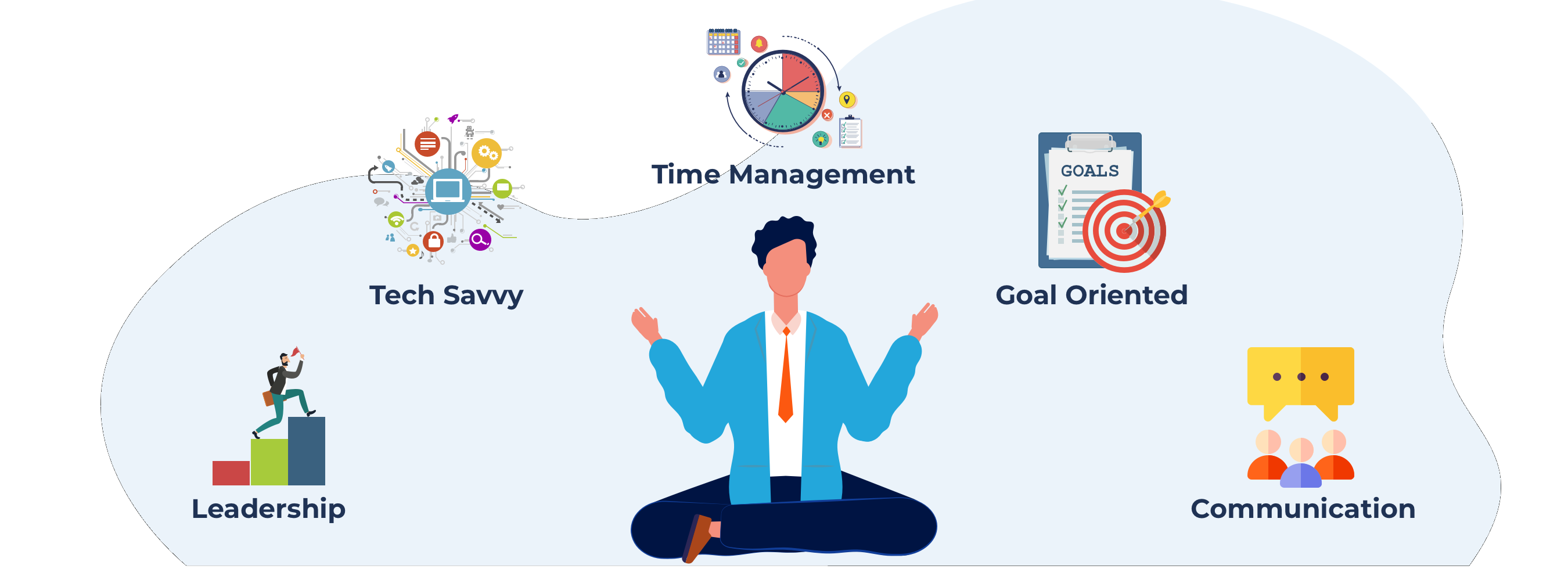
Training your employees is quite honestly, a no-brainer! You unlock multiple benefits when you invest in your personnel. The most obvious advantage is increased level of productivity and performance. Training provides your employees with the tools and expertise they need to execute their roles properly. It helps them understand their responsibilities in the organisation better. It also allows for increased engagement, and empowers them to feel like a valued part of the organisation. When they feel valued, (and can observe the investments being made through training programs) chances are that they will stay (and grow) with your organisation!
How Will Training Programs Add Value To Your Business?
Fleetx is committed to helping your business grow, and your personnel are one of its cornerstones. Hiring and onboarding, especially in the logistics industry, can be an expensive and time consuming process. By investing in training and working on the skills of your existing employees, you can improve employee retention. You can also redirect resources that would normally be spent on new recruits into training your personnel.
A well trained team will increase your chances of growing the business and improve overall efficiency of your operations. They will also be more confident in their abilities, and more motivated to contribute to your company’s growth. Higher levels of job satisfaction and morale- another benefit of training- can only have a positive impact on your growth.
Benefits of Training Programs:
Well trained employees reduce dependence on a supervisor to address trivial concerns, allowing them to do their jobs more effectively and focus their energies better. They are also better tuned to the functioning of the company, and are able to recognise challenges and offer solutions before they become problems.
Training programs can create an environment for knowledge-sharing, and pool resources to help employees learn from each other's wins, as well as their mistakes. And lastly, investing in your employees means investing in your growth. When your personnel are more productive, better engaged and feel valued, they can serve your customers better. And when your customer retention increases, your business will grow!
And growing your business is going to depend on your team of fleet managers, they are the strong foundation you will need. This article will explore the kind of skills and training that your fleet managers require to effectively manage your fleet!
Essential Skills For A Fleet Manager:
A fleet manager has to make sure that he is aware of all the different moving parts. And in the logistics industry, there are a lot of them! Fleetx’s technology solutions are geared towards improving efficiency in the industry, but we don’t forget about the people behind the machines. Technology alone cannot solve your management woes, you have to train your managers to do that. These are some of the skills that your fleet managers can be trained on:

- Time Management
Expert fleet management involves a strong sense of time management. Fleet managers deal with a wide variety of people - from upper management to the drivers out on the roads. In order to operate effectively, fleet managers have to ensure that deadlines are met while also making sure the (multiple) drivers are doing their jobs properly. This is the only way to make sure the fleet keeps moving!
In the logistics industry, good time management skills are about being able to focus on the important without being distracted by the unexpected. Look into training programs and activities that engage your fleet managers and help them improve this skill set. This can be done through resources available on the internet or by hiring an organisation that specialises in personnel development.

2. Being Tech Savvy:
The fleet management industry is being transformed by technology. No matter the size- from large to small- fleets are improving the management of their vehicles and drivers through technology. Good fleet managers should be able to apply these new solutions and train other people to use them. A majority of Indian fleet companies still rely on their managers to run operations with a pen and paper, and Fleetx sees this as an opportunity to introduce new ways of working.
Training your fleet managers to be comfortable with technology will change your operations for the better. Reach out to us if you’re looking for fleet management software that you can introduce your managers to!

3. Leadership:
Being a fleet manager means being responsible for a lot of people. Good fleet managers should be able to teach on the job and lead by example. They are the point of contact between the drivers and management, and have to ensure that they take care of all interests involved. Fleet managers should be willing to get their hands dirty and juggle various responsibilities. When you are a leader, this can be tough to do; drivers, suppliers, and management each have their own needs that sometimes come into conflict. A good fleet manager should be able to manage this conflict and take care of everyone on his team.
Great fleet managers can inspire their team toward shared goals, and improve job satisfaction in your drivers. Managers should be able to receive feedback made by team members, value ideas, and create an atmosphere that contributes to learning and growth. Training your fleet managers to be better leaders will help you maximise your efficiency and reach your organisational goals.
Leaders can make or break businesses, so it’s worth the investment to make sure that they are equipped with the tools that they need. Here are a few of the leadership skills that managers can be trained to develop: critical thinking and self-awareness, taking initiative, ability to delegate, ability to motivate, managing conflict and effective listening.

4. Communication:
Strong communication skills are non-negotiable in this role. Good fleet managers should be able to communicate effectively with all the levels in the organisation; whether it is presentations to senior management or a memo to the drivers, they should be able to do it with the same ease.
Good communication skills are essential to efficiency. Managers must be able to deliver large amounts of information simply and effectively, even if he/she is busy. An important, and often ignored, aspect of good communication is being a good listener. As a fleet manager, you are in a position of power to help your drivers out. Good communication skills will also be an asset while dealing with customers, who (let’s be honest) are not always the easiest people to communicate with.
Your managers will benefit from training their non-verbal communication skills as well. Body language is an important aspect of communication; good managers not only make a good impression, but are more likely to be remembered by both your employees, as well as your customers, for future interactions. A good manager can inspire trust and confidence. Too often this aspect of communication is ignored, but they can greatly enhance your fleet managers performance.
In Conclusion
These are just a few of essential skills that fleet managers should be trained on, the list can be much longer! But it’s a good place to start, and depending on the requirements of your organisation, you can curate a suitable training program. They might be expensive, and you might be hesitant, but trust us when we say that it will pay off in the long run!
Happy training!







